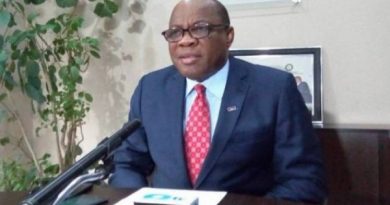Naira redesign: Tinubu promises to review CBN’s policy; old, new notes as legal tenders
Newly inaugurated President Bola Tinubu, on Monday, said his administration will revisit the naira redesign policy of the Central Bank of Nigeria (CBN) and will treat the old and new banknotes as legal tender.
President Bola Ahmed Tinubu has promised to review the controversial naira redesign policy of his predecessor, Muhammadu Buhari, and unify the multiple exchange rates of the naira.
Tinubu, who said this in his inaugural speech in Abuja on Monday, however, said that his administration would treat both the old and the new naira notes as legal tender.
He said that the policy was harshly applied by CBN, given the number of unbanked Nigerians.
“Monetary policy needs thorough house cleansing. The Central Bank must work towards a unified exchange rate. This will direct funds away from arbitrage into meaningful investment in the plant, equipment and jobs that power the real economy. Interest rates need to be reduced to increase investment and consumer purchasing in ways that sustain the economy at a higher level.
“Whatever merits it had in concept, the currency swap was too harshly applied by the CBN given the number of unbanked Nigerians. The policy shall be reviewed. In the meantime, my administration will treat both currencies as legal tender,” the President said.
On October 26, 2022, the CBN announced that the high naira value of N200, N500 and N1,000 would be redesigned and introduced into the economy from December 15, 2022, while commercial banks were directed to return existing denominations to the CBN.
“The currency swap was too harshly applied by the CBN given the number of unbanked Nigerians. The policy shall be reviewed. In the meantime, my administration will treat both currencies as legal tender,” Tinubu said during his inauguration at Eagle Square, Abuja on Monday.
He said the monetary policy needed thorough house cleaning and that the CBN should work towards a unified exchange rate.
Muda Yusuf, chief executive officer of the Centre for the Promotion of Private Enterprise, welcomes the decision of the new president to put in place a unified exchange rate regime. It should be clarified that this is not a devaluation proposition. Rather it is a pricing mechanism that reflects the demand and supply fundamentals in the foreign exchange market which allows for rate adjustments as and when necessary.




